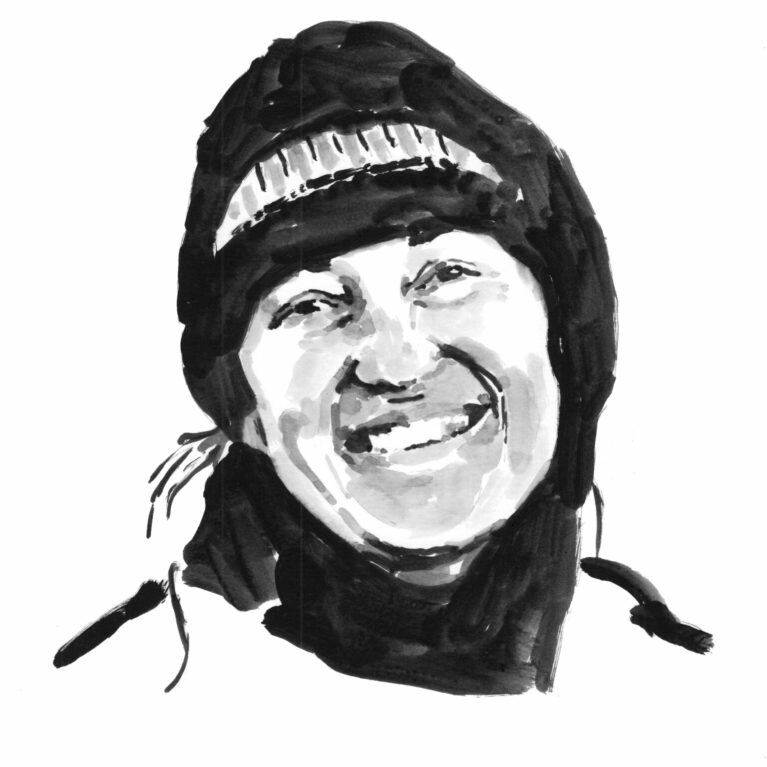Janie Wray

Who I am
It was at the age of nine that I first heard a recording of a humpback whale singing. Instantly I was both captivated and extremely curious. This was my first emotional response to sound, and the inspiration that led to a life-long commitment to understanding the behaviour of whales. After I graduated, my dream was to work with like-minded people and build a marine research station, off grid, in an area where whales thrive and the presence and impact of people are minimal. Like the whales, I am constantly migrating from one region of British Columbia to the other, following their movements and marvelling at their diverse acoustic traditions and life patterns.
Where I work
In 2001, with the permission of the Gitga’at First Nation community of Hartley Bay, we built Cetacea Lab, a whale research station along the remote north coast of British Columbia, Canada. In 2017 we moved our work to the Fin Island Research Station, nestled within the Great Bear Rainforest and the marine waterways of deep fjords. From this rocky shoreline we synchronise our observations of the daily movements of whales with our ability to listen into the underwater world they thrive in by means of a system of hydrophones. This is an extremely remote location and during the harsh winter months we close this station down. At this time, like the whales, I travel to southern British Columbia to manage OrcaLab, which is where this entire journey of whale research began for me, as an intern in 2006. I call it going home with the whales!
What I do
I have studied the acoustic dialects and social connections of orca, humpback and fin whale populations for more than 20 years, much of that time in rugged and extremely remote out-camps or in the bow of our marine vessel, scanning the horizon in search of whales. I have catalogued every humpback whale seen on the north coast of British Columbia and categorised their diverse call types. As a project leader, I manage student projects, two isolated research stations that operate seasonally, as well OrcaLab throughout the summer and winter months. Recently I have initiated a new platform known as ‘The Network’, a collaboration of NGOs with a strong background in acoustic research that work in different regions along the entire coast of British Columbia. This strong partnership will come together to establish critical habitat and marine protected areas for whales to ensure their long-term recovery as protected species.
The Save Our Seas Foundation has funded our work since 2012. During this time we have grown from two people with a dream into a team of individuals with diverse backgrounds and abilities but a single purpose: to protect whales and ensure their survival. This would not have been possible without the long-term funding and support of the Save Our Seas Foundation. We are forever grateful – as are the whales!
